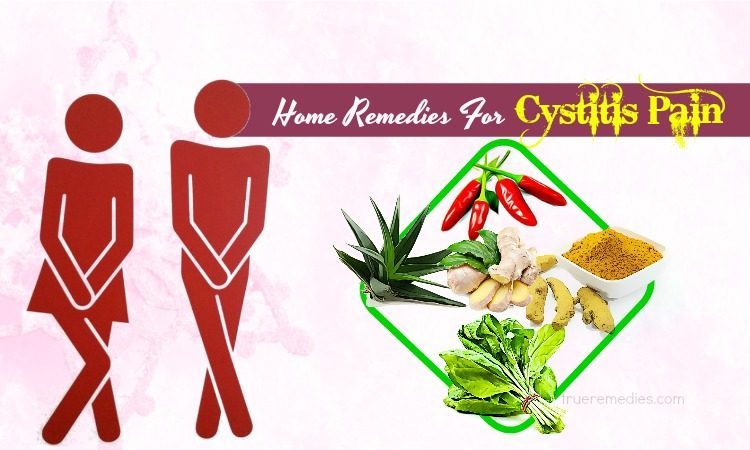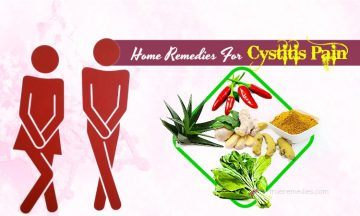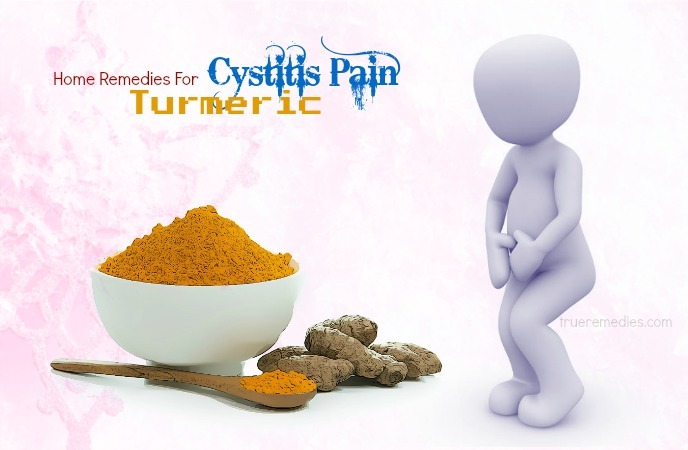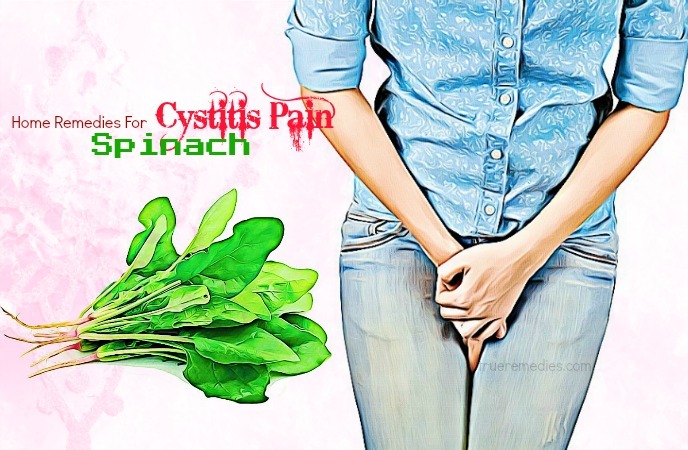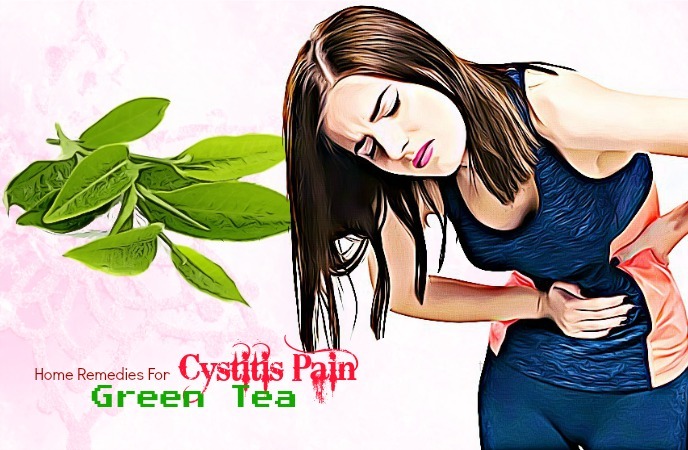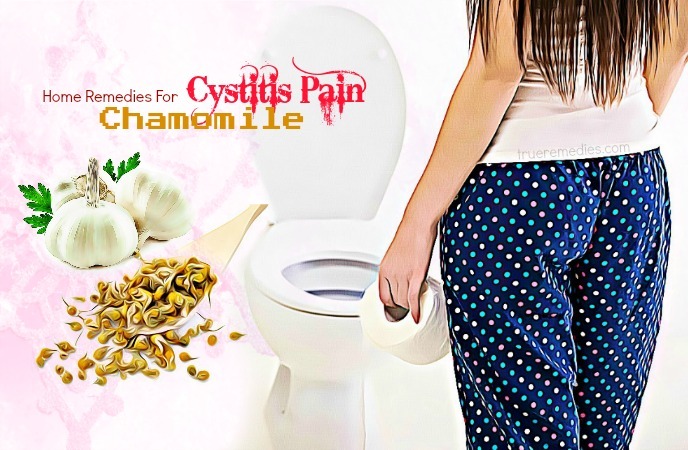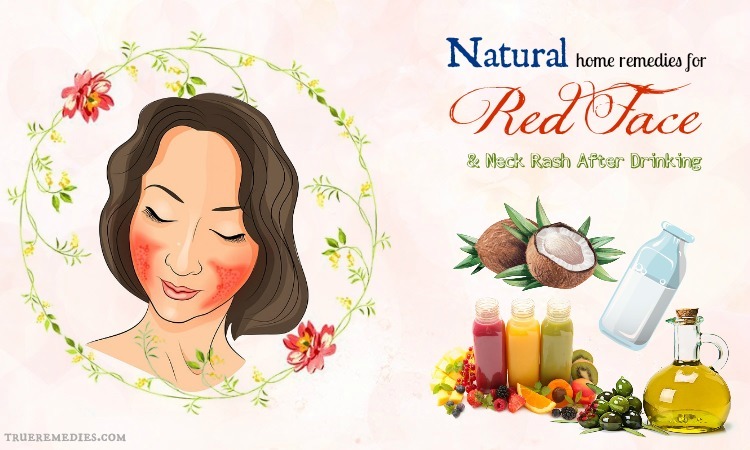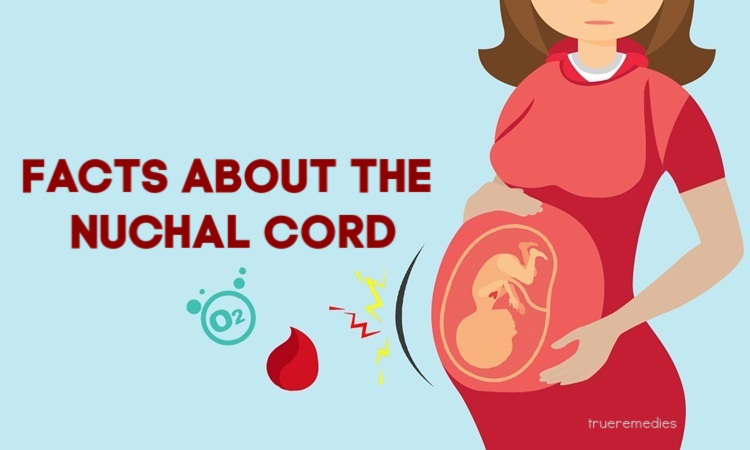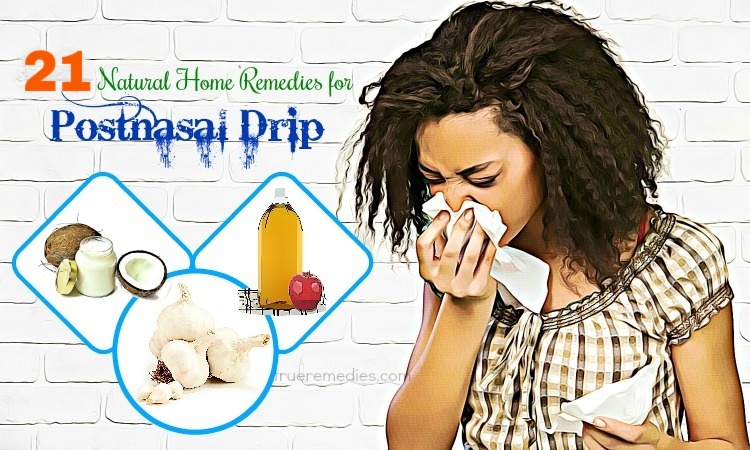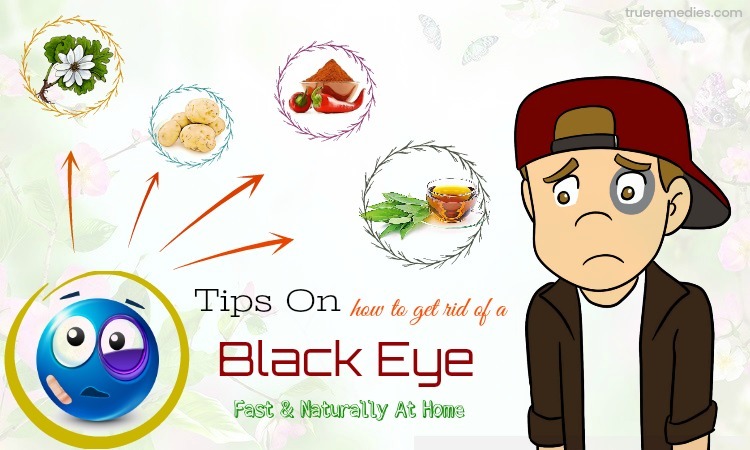Updated: 12/04/2019
Contents
Cystitis is a very common disease, accounting for over 50% of cases of urinary tract infections. Cystitis is more common in women than in men because the urethra in men is longer than in women. If cystitis is not treated promptly, it can cause very dangerous complications, even leading to a kidney infection. So, please spend your time to read the article to learn more about cystitis and natural home remedies for cystitis pain relief right now!
- 21 Natural Home Remedies For Kidney Failure Symptoms In Humans
- 20 Natural Home Remedies For Kidney Infection Relief (This article was medically reviewed/ fact checked by Dr. Scott A. Johnson AMP, CEEOS)
- 14 Natural Home Remedies For Kidney Pain
Best Home Remedies For Cystitis That Help Reduce Your Pain
I. Is Cystitis Dangerous?
If cystitis is not treated thoroughly, it may leave many dangerous complications.
Kidney infection and kidney failure: Cystitis is one of the causes of kidney infection. This is because bacteria from the bladder can travel up the kidney. If the illness is prolonged, it will cause kidney damage, kidney dysfunction, and even kidney failure, which requires patients to have kidney treatment or do dialysis at a large cost.
Hematuria and anemia: When cystitis becomes worse, patients will have blood in urine due to bacterial infection in the blood. If not treated promptly, prolonged hematuria may lead to anemia, dizziness, fainting, coma, etc.
Increase the risk of infertility and subfertility: For people with cystitis, their sexual life will be in disarray. Some complications, such as kidney dysfunction, poor kidney function, and kidney failure will reduce the physiological ability, which causes a high risk of infertility or subfertility.
TrueRemedies Partner Solutions

Need a Help from the Leading Expert Online, Available 24/7?
They’re all here and ready to answer your questions online or by phone. Keep asking questions until you get the answer you need.
After learning about the dangerous complications of cystitis, you should treat the disease quickly and thoroughly. Now, have a look at the next part of natural but effective remedies for cystitis that you should not miss.
II. Home Remedies For Cystitis
1. Heat / Cold Therapy
Sometimes, heat or cold therapy is considered the most efficient remedy to help relieve the pain associated with a cystitis flare[1]. Basing on the kind of flare, cold may be more effective, or heat, or even a mixture of both.
The bladder wall flares will react positively to the heat, similarly to the muscle flares. To use heat therapy for cystitis relief, you can use a hot water bottle or heating pad to place over your abdomen in case of flares
That way, the heat will help the spamming and tight muscles to relax and naturally soothe bladder wall[2].
In case you want to treat a pelvic floor flare with the heat, then it may be beneficial to use a much longer lasting portable heat pad inside your underwear or pants.
For cold therapy, you use a frozen water bottle, of course with a layer of protection over it, to place against your urethra. The cold will help lessen inflammation.
Note: It is crucial not to leave either the hot or cold for a long time. You had better alternate or remove after 20 minutes of applying.
2. Baking Soda
Baking soda is one of the most effective solutions for bladder infection and cystitis as well. Because this condition needs a reduction in the acidic content within our system, alkalizing it by using baking soda will supply lots of relief[3]. For relieving cystitis, you can do the following steps:
- Mix 1/2 -1 teaspoon of baking soda in a glass of water
- Have it 2-3 times per day
In addition to that method, you can also take a bath with baking soda by mixing a proper amount of baking soda in the bathtub which is filled half with water. Then, soak your body in this solution for a few minutes to relieve the pain.
Note:
- The recommended dose of baking soda which is reckoned safe for an adult is ½ teaspoon dissolved in about 4-8 ounces of water every couple of hours. Any dose more than that may lead to complications. You may suffer from brain bleeding or brain damage once you ingest too much baking soda. Rare cases of baking soda overusing include coma, death, or seizures[4].
- If you take baking soda or sodium bicarbonate too much, it may increase the sodium levels in your body[5]. Hence, you had better ask your doctor before using this ingredient to treat acute cystitis in case you are applying a low-sodium diet plan for some health reasons.
- Sometimes, sodium bicarbonate may occasionally cause slight side effects, such as stomach pains, increased thirst and gas. Rarely, sodium bicarbonate may cause serious secondary effects, such as vomiting and nausea, severe headache, blood in the stools or urine, and slow breathing[6]. Thus, you had better stop taking sodium bicarbonate instantly and consult your doctor if you go through any side effects.
3. Quercetin
Quercetin is often used for treating many diseases, including hives, allergies, asthma, etc. According to studies, the flavonoids found in quercetin may be a good solution for treating interstitial cystitis[7]. You can also add more foods having a rich content of this compound to lessen cystitis symptoms.
When it comes to the recommended amount of quercetin used daily, 500 mg of quercetin twice per day may help lessen the bladder infection as well as urinary systems accompanied with IC (Interstitial cystitis). But, women who are pregnant or breastfeeding should avoid using this ingredient.
4. Turmeric
Turmeric is a common ingredient in our kitchens, but not many people know that it is used to treat many ailments, including UTIs and cystitis. In turmeric, the compound curcumin has antioxidant, anti-inflammatory, and possesses anticancer properties. Because of such qualities, it is used to deal with symptoms related to bladder problems and interstitial cystitis[8]. Turmeric is safe for human consumption as a coloring and natural flavoring for food. As a supplement in the extract, tea, and capture forms, turmeric may help decrease inflammation resulted from urinary tract infections. In case you are taking anticoagulant medications or suffering from a blood clotting disorder, you had better check with your doctor before using turmeric, which possesses natural blood thinning properties[9]. Also, turmeric may interfere with diabetes medications and antacids.
If you are not in such cases, you can add this ingredient to your daily diet to take its advantage. Add it to vegetables, milk, curries, etc. For better results, consume turmeric daily.
5. Diet
One of the most popular home remedies for cystitis is drinking pure cranberry juice because of its acidic nature. Vitamin C is beneficial for killing the bacteria which lead to inflection[10]. A study stated that pregnant women who took 100 mg of vitamin C every day had a lower risk of UTIs[11]. You can consume red peppers, oranges, grapefruit, and kiwi fruit to have enough intake of vitamin C. Some people with cystitis find that an anti-inflammatory diet is useful for inflammatory diseases, including this condition. This is a low-sugar, gluten-free or wheat-free diet with little or no processed foods.
6. Colloidal Silver
This plant is used both internally and externally for treating different diseases such as rashes, cuts, or some infections[12]. Some studies show that it is efficient for the treatment of cystitis and other bladder diseases. You had better consume it in liquid form every day for dealing with this condition.
7. Pumpkin Seeds
Having many compounds and nutrients such as fiber, magnesium, iron, and so on, pumpkin seeds are an excellent source for treating different diseases. The major component of this plant is arginine, making them helpful for bladder infections[13]. Consume the seeds every day and see the improvements after just several days.
8. Probiotics
Probiotics are the friendly bacteria that play a crucial role in our bodies[14]. It may provide relief from pain accompanied with cystitis by naturally balancing the microbes within the intestine[15]. You may take advantage of some foods like soft fermented cheese, sour cream, yogurt, beer or mayonnaise, etc.
9. Spinach
Not only is spinach a good source of antioxidants, but it may also help with a painful bladder[16]. Have it daily to remove cystitis. You can use it in the raw form as a salad, or cooked form.
10. Marshmallow Root
Marshmallow root is among the most preferred herbs for cystitis[17] [18]. Traditionally, it has been used for naturally soothing urinary tract system tissues. It may work by coating the bladder walls. The root of this herb contains mucilage as the main constituent that coats the mucous membrane of the bladder and therefore prevents inflammation and irritation. In terms of nutrition, marshmallow root has some nutrients like calcium, magnesium, iron, selenium, vitamin A, B1, B2, C, manganese, potassium, phosphorus, niacin, silicon, zinc. You can take it in tea or supplement form. Most patients of cystitis report that the tea form seems to work best for their cases. It may heal the tissues and soothe the lining of the urethra, kidneys, and bladder. It is easy to make Marshmallow tea by:
- Add 1-2 teaspoons of this herb to hot water
- Wait for 10 minutes to let it simmer
- Drink it daily to get the best results
It is said that take it in capsule form will work best for intestinal issues.
11. Ginger
Ginger is very beneficial for treating cystitis and easy-to-find. Not only does it work for inflammation, sickness, gas elimination, digestion, but it also helps in detoxifying the human body. A lot of cleansing programs, along with detox diets, have ginger as one of the main ingredients. The buildup of toxins within the body is the underlying cause of some conditions, including intestinal cystitis. Ginger has shoga and gingerol which are anti-inflammatory and antispasmodic and supports to sooth our digestive system[19].
You can consume ginger by adding it to your curries or take it in capsule form. Preparing ginger tea may be the best way to take it. Add some grated pieces of ginger to a cup of hot water, then wait for 10 minutes to let it simmer. Have it a few times per day.
Note: You should acknowledge that different people will have different reactions as well as responses towards ginger use, particularly in the treatment of cystitis. Some may report a soothing and relaxing feeling, while others say the opposite. In case ginger worsens your cystitis condition, you should use it in small quantities at the beginning.
Ginger may also be added to your bathwater to reduce cystitis symptoms. Add two tablespoons of ginger powder to your daily bath water. That way, your body will absorb the ginger’s nutrients via the skin, giving it a natural soothing relief.
12. Aloe Vera
Thanks to therapeutic properties, aloe vera is used to treat many diseases for ages. Containing 99% water and 1% glycoproteins, tannins, polysaccharides, lipids, sterols, amino acids, enzymes, and vitamin B12, C, E, A, zinc, magnesium, calcium, essential fatty acids as well as protein, aloe vera may help treat skin infections, burns, wounds and many other topical skin infections[20]. Also, it is beneficial for decreasing the symptoms of interstitial cystitis, according to some research, because it helps maintain the necessary level of the glycosaminoglycans (GAG) within the human body, which is considered the first thing damaged by interstitial cystitis[21]. Additionally, aloe vera has antibacterial, anti-inflammatory, antimicrobial, and antibiotic properties. Thus, it is one of the best home remedies for cystitis. You can consume the fresh juice made from this plant every day to see good results. Or, you can use aloe vera pills or gel to get similar effects.
Note:
- In general, aloe vera gel is safe if taken by mouth in matures. But, there are still some possible side effects which may be loose bowel, unintended weight loss, abdominal cramps, or other medical conditions[22]. Sometimes, aloe vera may lead to birth defects or abortion.
- You had better avoid taking aloe vera if you are getting pregnant or breastfeeding, having a liver or kidney condition or are diabetic.
- Avoid giving aloe vera to children or people with hemorrhoids or intestinal condition.
13. Licorice
Licorice roots may alleviate the burning sensation which is accompanied with cystitis, according to some studies[23] [24]. Licorice root has anti-inflammatory and antibiotic properties, supporting the healing process effectively. You can make use of this herb by following these instructions:
- Mix powdered licorice root in a cup of plain water
- Take the mixture to heat up and strain it after boiling
- Sip slowly regularly to get good results
14. Green Tea
Another great option among easy remedies for cystitis that you can do at home is green tea which possesses many essential antioxidants, particularly catechins which protect the bladder cells from inflammation[25] [26]. You can consume this tea twice per day regularly to get the best results.
15. Physical Therapy
A lot of cystitis sufferers find that their pelvic floor muscles are super tight. In that case, physical therapists may help release such tight muscles as well as tender trigger points by making use of techniques like deep tissue massage, also known as “myofascial release”, nerve releases, or trigger point release therapy[27].
Biofeedback is used by many therapists by placing some probes into the anus or vagina. Those probes/electrodes show on the computer screen how tight the pelvic floor muscles are. Then, the readings from them may help you learn the best way to relax the muscles.
Usually, cystitis sufferers do not even realize how tight their pelvic floor muscles are until they see it on the computer screen using the biofeedback. They are familiar with these tight muscles and need help learning the way to relax them. While the majority of people, particularly women, think of pelvic floor exercises, Kegels will be their answer. However, doing Kegels will teach your body to tighten the pelvic floor muscles naturally. Cystitis sufferers need to learn how to relax those muscles and work with a physical therapist to know specific exercises for this purpose regularly.
16. Take Plenty Of Water
Water may help with your problem[28]. That sounds ridiculous and too simple, but it is worth your effort. Drink at least 6-8 glasses of water every day to keep your body hydrated, stave off constipation, and keep your urine not too acidic[29]. However, many people with cystitis are afraid of drinking too much water because it makes them have to urinate more, causing more pain. Thus, it is better to find the right amount of water intake. You should sip water throughout the day to stay hydrated and keep frequency/urgency to the minimum level.
In reality, during the flare, some people with cystitis choose alkaline water to warrant that their urine is not too acidic. Another tip to balance the urine acidity is drinking ½-1 teaspoon of baking soda which is mixed with a glass of water.
17. Manage Stress
Stress may trigger inflammation within the human body and cystitis is an inflammatory condition[30]. Thus, it is crucial to find ways to de-stress and relax, thereby helping reduce inflammation.
Simple steps, such as meditating, may help relieve stress effectively. Also, you may help your pelvic floor muscles be relaxed by laying an inverted position on the ground with your legs up on the ottoman or chair for about 15 minutes every day while working on the relaxation techniques, be it using guided relaxation, listening to music or meditating.
18. Parsley
Drinking parsley infusion made from 2 tablespoons of parsley herb simmered in boiling water for 10 minutes will help you relieve cystitis symptoms effectively. That is why it is mentioned in this series of home treatments for cystitis pain relief[31].
19. Chamomile
Commonly used to calm fussy children, soothe digestive illnesses, and relax stress matures, chamomile is a flowering plant having a range of medicinal properties. According to Dr. Cindy L.A Jones, who is the author of the book “The Antibiotic Alternative”, the anti-inflammatory and antimicrobial properties of chamomile may improve the symptoms of cystitis[32]. If used to aid antibiotics in the treatment of bladder infection and cystitis, chamomile tea is added to the bath water for simply soaking, which utilizes the antiseptic properties of the herb.
Or, you can also follow the steps here:
- Boil two tablespoons of chamomile with three raw garlic cloves in one liter of water for about 20 minutes
- Remove it from the heat, allow it to cool down and strain it up
- Wash your down there are with this solution before your bedtime
20. Epsom Salt
Having a bath with Epsom salt is an excellent way to deal with cystitis. As mentioned above, controlling stress is one way to decrease cystitis. Epsom salt has magnesium as the primary component, so taking a bath with this ingredient will help reduce stress[33] [34].
What you need to do is:
- Pour 2 cups of Epsom salt to your bathtub
- Immerse yourself in this solution for 20 minutes
During that time, feel your pores open to expel the toxins. Having a bath with Epsom salt will help relieve muscles, relieve stress, and improve circulation. For extra benefits, you can add some soothing lavender or sandalwood essential oil to the bathwater.
21. Avoid Bubble Bath, Scented Soap, And Deodorant Sprays
Bubble baths, scented soap, and deodorant sprays may worsen your problem. Thus, you should replace them with some natural alternatives.
22. Regulate Hormones
For a large number of women, cystitis pain may flare with the changes in their hormones. Some of them find that their cystitis flares are worse before the time of ovulation and then disappear after that time. Others find that the time from ovulation to the start of their menstrual cycle is the worst.
Sometimes, pregnancy will relieve cystitis pain until the 3rd trimester. Also, it is not uncommon for women to suffer from a big flare occasionally during their postnatal period because their hormones are in main flux.
III. Extra Tips
- Avoid taking bladder medicines without having a consultation of your doctor
- Avoid trying the physical therapies such as nerve releases or trigger point release at home if you do not understand it and use it professionally
- Wear those loose clothes
- Practice simple exercises such as stretching, jogging, and meditation to support the healing process and relieve your problems
- Stop smoking
IV. Follow-up Care After Cystitis Treatment
- Drink plenty of water
- Avoid beverages that contain caffeine, as they may irritate your bladder
- Pee immediately as soon as you want to pee
- Wear cotton underwear and loose clothing
- Women should wipe from front to back after a bowel movement to prevent the transmission of bacteria in the stool. Also, taking a shower is better for patients after recovering from the illness. Make sure to wash the genital area gently. Urinate right after sex and drink enough water. And, avoid any products and female hygiene washes that irritate the genital area.
More Information About Cystitis
What Is Cystitis?
Cystitis is a bacterial infection causing your bladder to be inflamed[35]. It occurs when the bacteria breaks into your bladder via your urethra, which is the tube carrying urine out of your own body. This condition is most common in females, but males and children also get it sometimes. It is estimated that about ½ of the female population will get urinary tract infections like cystitis at some point in their life[36]. Mild cases of cystitis will usually get better on their own within a few days. Nevertheless, some people may experience episodes of cystitis frequently and may need regular or even long-term treatment.
Also, there is a chance that cystitis may result in a more serious kidney infection, so it is crucial to consult a doctor if your symptoms get worse.
What Are The Signs And Symptoms Of Cystitis?
The significant symptoms of cystitis[37] often are:
- Burning, pain and stinging upon peeing
- The demand to pee more urgently or often than regular (urinary frequency)
- Urine which is cloudy, dark and strong smelling
- Pain in the tummy area
- Feeling achy, unwell, tired and sick
- Blood in the urine (hematuria)
The possible symptoms of cystitis in young children include a fever (high temperature) of 38C or 100.4F or even above, irritability, vomiting, reduced appetite, and weakness.
What Are The Causes Of Cystitis?
Often, there are many causes of cystitis. Most of them are infectious. The majority of such cases originate from an infection. The bacteria come from some external genitourinary structures. Cystitis is more common in females than males, probably because the back passage (anus) is closer to the urethra in females, and the urethra is shorter.
The causes[38] of cystitis are not always obvious, but it may be caused by:
- Wiping the bottom after going to the toilet – especially if your wiping direction is from back to front
- Inserting a urinary catheter, which is a thin tube inserted into your urethra in order to drain the bladder, or a tampon
- Resorting a diaphragm for contraception
- Having sex
What Are Risk Factors Of Cystitis?
Some people seem to be more likely than others to cystitis or recurrent urinary tract infections. Women are more likely to have this condition than men. The main reason is physical anatomy because women have a shorter urethra, cutting down the gap that bacteria have to travel in order to reach the bladder.
- Tampon use
- Certain types of birth control
- Sexual activity,
- Blockage in the urinary system’s part which prevents the urine flow
- Full bladder
- Vigorous or frequent sex
- Decreasing estrogen levels
- Mucus reduction
- Gender, particularly women
- Radiotherapy
- Changes in the immune system
- Having experience menopause
- Having pregnancy
There you have discovered the top 22 best home remedies for cystitis pain relief. If you are experiencing symptoms of cystitis, then know that you are not alone in your journey. There are so many people having this condition like you. Just give some of the treatments introduced here a try and see how they work for you.
However, all content provided is for informational & educational purposes. We recommend you consult a healthcare professional to determine which method is appropriate for you and to avoid the side effects when applying these methods. In addition, asking for healthcare professional’s advice may help you know that you have to take medicine or not.
Stay tuned to our website for more home remedies related posts. If you have any comments about this article, feel free to drop your words below this post!

